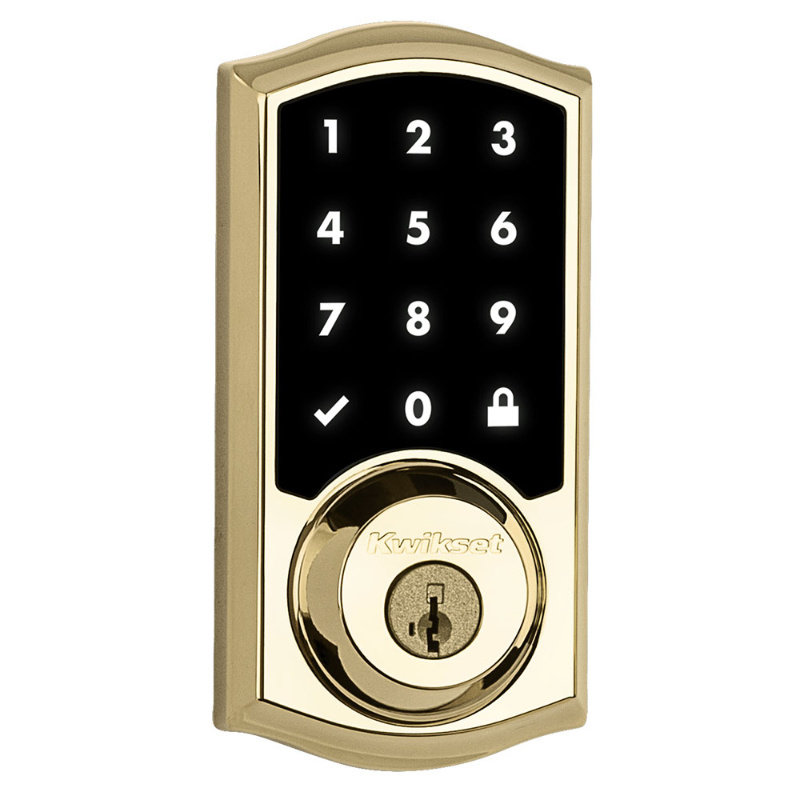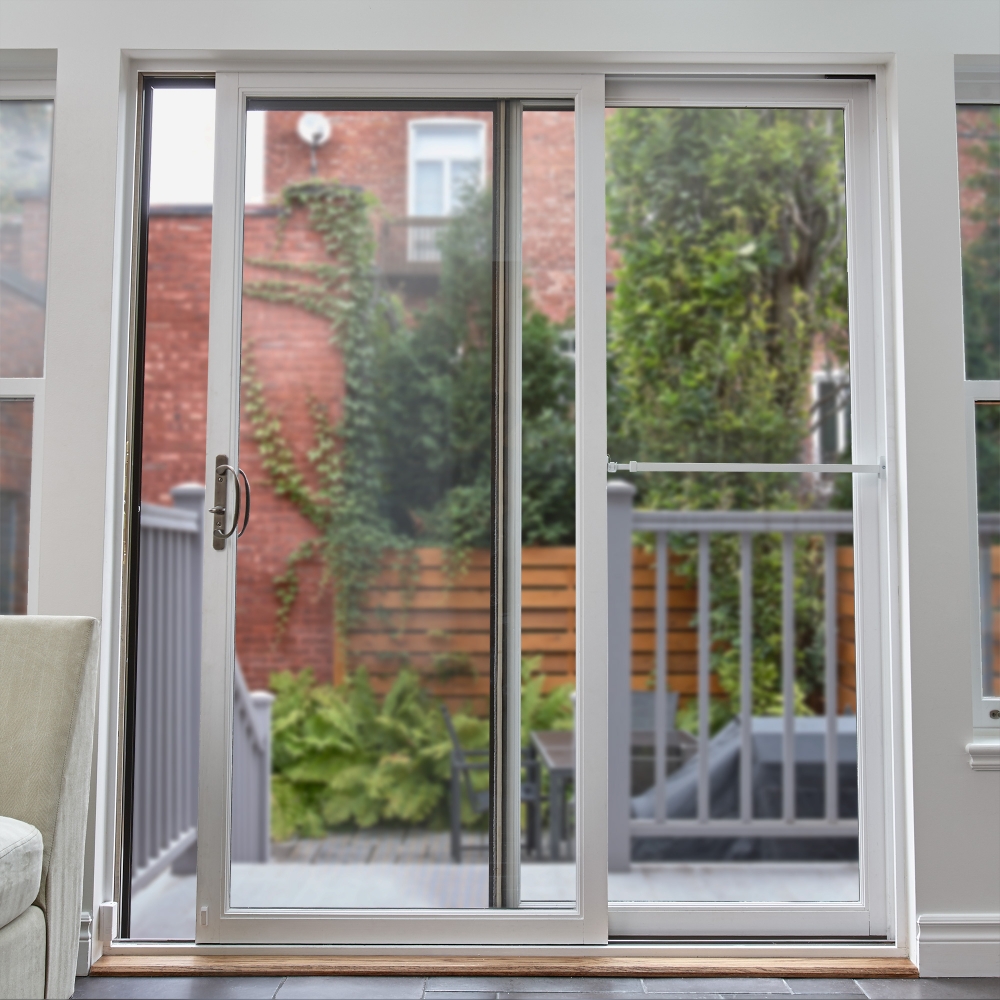
There are a variety of smart locks you could buy. There are Bluetooth-capable models, Keypad-only models, and WiFi-capable models. It's essential to select the right one for you home and lifestyle. These are some of the options that you can use to protect your home.
Smart locks compatible with WiFi
WiFi-capable locks can be a great choice if you're looking for a smart lock that will work in your home. These locks can be opened using a simple app or built-in WiFi. They can also be connected to other connected home devices like an indoor security camera and video doorbell.
A few smart locks are paired with mobile apps and even offer web access. These smart locks can be paired with mobile apps, so you can add permanent users or set access times. Some of these smart locks can record activity logs so you can keep track on who has access and when.
Smart locks without keys
There are many Keyless Door Locks to choose from, including Bluetooth- and WiFi-enabled locks. These locks can be delivered to you at your home or picked up in a store near by. August's WiFi Smart Lock Matte Black Single Cylinder Deadbolt sells for $549.99. It also comes with an one-year warranty.

FAQ
Can ADT be hacked
ADT security is the oldest home alarm system available. ADT Home Security System is still considered the best choice by many consumers. They simply trust its reputation of being a reliable company dedicated to protecting homes from burglars and fires.
Hackers can also infiltrate organizations, as with everything, and take down trustworthiness. Hackers can easily hack into a network and steal sensitive data. If a hacker manages to infiltrate your network, they can access everything on the computer and modify the important settings. Hackers can change passwords and delete files. It's important to recognize that hackers might try to hack into your house just because you can't see it. Make sure you have the right information to help protect your system.
What are the differences between home security systems?
You need to assess the level of threat in your community. If there is a lot crime in your area, you may want an alarm to sound when someone enters your home. You may not require as much security if your home is in a rural area with few burglaries.
You also need to consider whether or not you're willing pay more for these extra features. Some systems have cameras built in while others do not. Some allow you monitor your house remotely while others require you physically to view the footage.
What is the difference in surveillance and security cameras?
Surveillance cameras may be used to monitor, but security cameras can also be used to protect.
Both types of cameras have their advantages and disadvantages. They capture different types of images. Surveillance camera record video in slow-motion so you can follow what's happening live. Security cameras however, record video but not still photos. These images can be viewed later.
Which Home Security Systems Are Unhackable?
This depends on what definition you use of hacking. Hacking refers to the unauthorized access of computer systems, networks, or data. Hacking is impossible for most home security systems because they do NOT contain software that can be remotely controlled. They won't let anyone enter your home without permission.
If they are connected to an internet connection, however, certain home security systems may be compromised. These systems often require a password to be activated. This means that anyone can hack them if they know the right password.
What is your number one home security product?
Ring Video Doorbell Pro has been voted the best home security system. You can speak with anyone, anywhere and at any time using your smartphone. You can also take video footage and share it by text message or via email with family and friends.
Can I put in a security cam by myself?
Yes! You can install a home alarm yourself if you know what you're doing. If you don’t have the skills to do it yourself then you can hire a professional to help you.
Which home surveillance camera system is best?
You should invest in a home security system that includes cameras to protect your family and property from potential criminals. These systems are very easy to use, and provide many benefits for homeowners and renters. You can also remotely monitor your property from your smartphone, tablet, computer or any other mobile device.
Statistics
- Related questionsHome security systems that are 100% DIY (safewise.com)
- Most home security companies will charge you around 75% of the remaining term of your contract if you cancel early—and some require 100%.Related questionsWhat type of contract length can I expect from security providers?Home security system cancellation (safewise.com)
- (In my experience, the discount on my home insurance covered about 25 percent of the subscription of an average plan, but your mileage may vary depending on your location and the size of your home.) (theverge.com)
- That's probably why Cove has a whopping 98%* customer retention rate. (safewise.com)
External Links
How To
How to Install a Home Security System
A home security system monitors your property and alerts if there is any activity. It could include a motion sensor or doorbell camera, smoke detectors, flood alarms, carbon monoxide detectors, burglar alarms, and flood alarms. A home security system usually consists of one or more sensors (e.g., motion detectors), which send signals when they detect movement or sound. The signals are then sent to a control panel where they're monitored and recorded. If something goes wrong, like someone breaking in to your house, the control panels sends an alert to your phone or tablet, your computer, or voice assistant. You will immediately be notified and can take appropriate action.
You must first choose the right kind of sensors for you home in order to install a home alarm system. There are two main types, passive and active. Passive sensors do not require batteries. They simply pick up sounds and vibrations around them. They include things like doorbells, sirens, and buzzers. Active sensors use electricity for data transmission. Examples of such sensors include cameras and motion sensor.
There are many sensors brands today. Each brand has its pros and cons. Some sensors are weatherproof and others aren't. Some come with built-in speakers so you can hear them even if they're outside. Some only work indoors. Others are more complex, while some offer more advanced features like night vision.
After you have decided on the best sensors for your property's needs, you will need to choose a manufacturer. This will help you ensure your sensors work well together. Your local hardware store should have plenty of options to choose from.
After you have chosen a brand, you will need to decide how many sensors you wish to purchase. Depending on whether someone lives alone or with their family, most people buy one to two sensors. If you have plans to purchase additional sensors in the future, it might be worth buying more than you currently need.
Next, think about where you want them to go. Do you want them close to doors or windows? Or would you rather have them hidden? Make sure you get permission before placing them around your property. Make sure that they won't cause interference with any other electrical outlets.
After you've determined the location of your sensors, you will need a way that they can be connected to your control panels. You may need a power adapter, or battery pack depending on the setup. Once everything is in place, you can start to monitor your property.